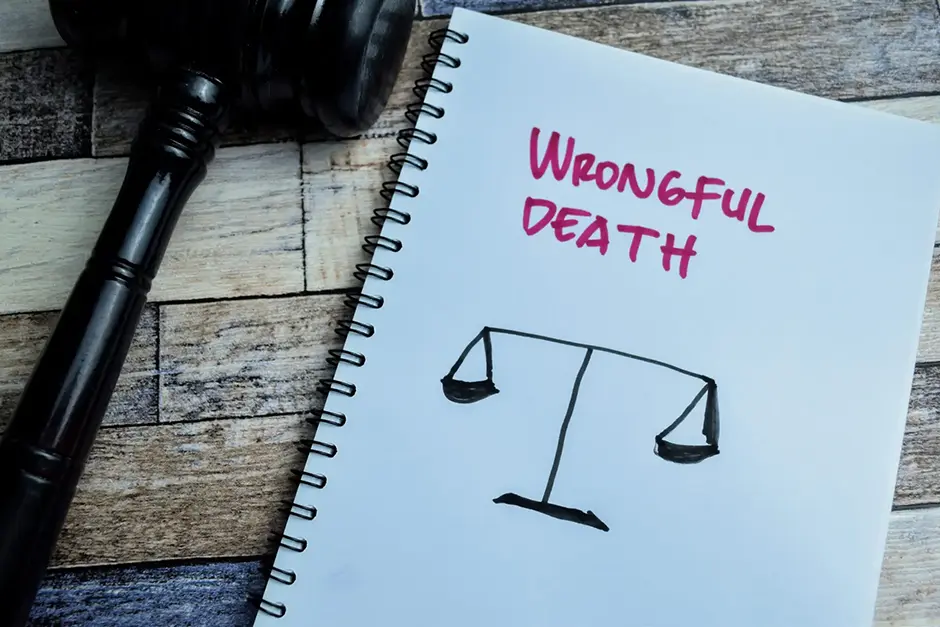When someone loses a loved one due to another’s negligence, they may seek justice and compensation through a wrongful death claim or survival action. Such claims allow certain relatives, loved ones, or legal representatives to recover expenses and losses related to their loved one’s demise.
Every state has different requirements regarding who can file a wrongful death lawsuit. State laws also address legal grounds for filing a wrongful death claim and processes for securing damages.
Who Can File a Wrongful Death Lawsuit?
Each state has different laws governing who can file a wrongful death lawsuit. Depending on the state, the following individuals may have grounds to file.
Spouse or Domestic Partner
Some states allow the decedent’s spouse to file a wrongful death lawsuit against the at-fault party. In certain jurisdictions, the spouse must have been legally married to the deceased individual. Others allow the decedent’s domestic partner to file, as long as they can prove they lived in the household or shared expenses.
Separated Partner
A separated spouse or partner of the deceased person could have grounds to file a wrongful death claim in certain states. Typically, this only applies if the deceased individual passed before the divorce was finalized. However, if the couple had been divorcing or separated for a long period of time, the court may appoint a different family member to file the claim.
Child or Step-Child
If the deceased does not leave a surviving spouse or partner, their children may have a right to file a wrongful death suit. State laws vary regarding step-children and minors. Often a step-child who lived as part of the household will have the same right to file as the decedent’s other children. If the children are minors, the court may appoint a guardian or representative to file a claim on the children’s behalf.
Parents or Grandparents
If the decedent was a minor child or an adult with no spouse, partner, or children, their parents may have a right to pursue a wrongful death case. Laws differ between states regarding grandparents. Some states do not consider grandparents close enough relatives unless they were the direct caretakers of a minor decedent.
Aunts, Uncles, and Other Relatives
Distant relatives such as aunts, uncles, and cousins typically do not have standing to file a wrongful death lawsuit. However, the court in certain states may make an exception if the relative can prove they lived as part of the decedent’s household and shared living expenses.
Executor or Personal Representative
Some state laws only permit the executor or personal representative appointed by the decedent’s will or the court to file a wrongful death claim. Sometimes, this is a member of the deceased person’s family, such as their spouse or adult child. Other times, the personal representative or executor will be an attorney or other court-appointed third-party.
Who Benefits From a Wrongful Death Lawsuit?
Following the death of a loved one, surviving family members or other legally permitted individuals may bring a wrongful death claim or survival action against the at-fault party. To determine who can file a claim or receive a settlement, it is important to understand the difference between a survival action and a wrongful death suit.
Wrongful Death Suit
A wrongful death lawsuit is often filed by the decedent’s spouse or other family member to recover compensation for their own losses due to the death of their loved one. Settlements and verdict payouts may go to the plaintiff or other family members, as determined by the court and state law. It is important to note that the people who are authorized to file the wrongful death lawsuit are not necessarily those who will benefit from the suit.
Damages in a wrongful death claim may include burial and funeral expenses, medical expenses, pain and suffering, lost income, loss of advice and support, and loss of companionship.
Survival Action
A survival action is typically brought by the decedent’s personal representative, executor, or other legally appointed representative. Unlike wrongful death claims, survival actions are filed on behalf of the decedent’s estate. They aim to recover the compensation the decedent would have received had they survived their injuries. These damages may include medical expenses, funeral and burial costs, lost income, and conscious pain and suffering.
Awards for a survival action go to the decedent’s estate. The decedent’s executor or personal representative distributes the proceeds to the appropriate parties, including debtors and beneficiaries.
What Are Valid Grounds for Filing a Wrongful Death Claim?
Grounds for filing a wrongful death lawsuit or survival action also vary between states. Generally, the decedent’s approved family member or representative can file a wrongful lawsuit if they can show:
- The decedent’s death was directly or indirectly caused by another person or entity.
- The party responsible for the decedent’s death was acting in a careless, negligent, or willfully wrongful manner.
- The decedent’s death caused actual losses to the decedent’s loved ones or estate.
The representative for the decedent must gather evidence to prove the at-fault party caused the decedent’s death. This may include photos and videos of the incident that led to the decedent’s injuries and death, witness statements, medical records, expert medical opinions, accident reconstruction, financial statements, medical bills, and income statements for the decedent.
Members of the household may provide bank records, bills, mortgage documents, and other information that show how the decedent contributed financially. They may also use testimony from medical providers to provide evidence of the decedent’s conscious pain and suffering before they passed.
Since wrongful death claims tend to be complicated and vary by state, surviving family members or personal representatives often hire a wrongful death lawyer to assist them. A wrongful death attorney can help grieving loved ones understand the applicable laws in their state and determine who can file a wrongful death claim.





